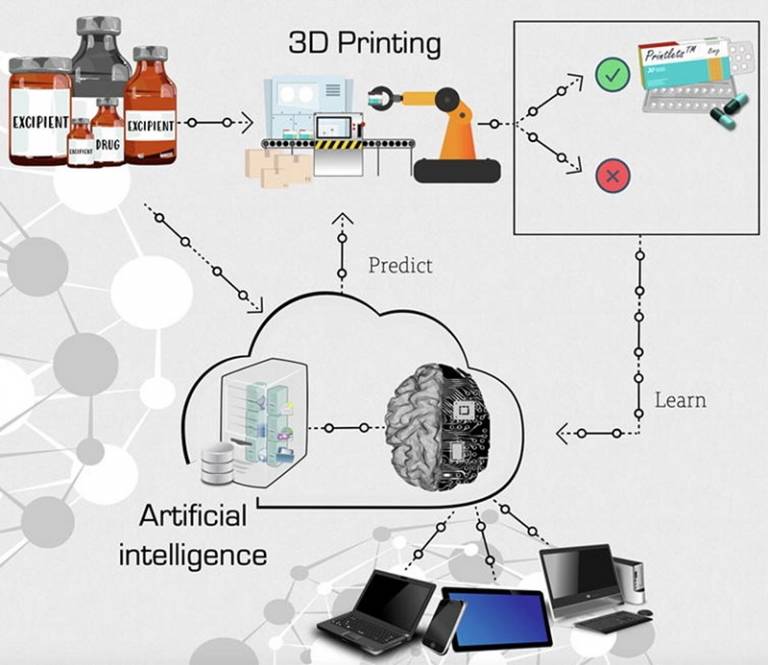M3DISEEN: The World’s First AI software in 3D Printing Pharmaceuticals
28 September 2020
UCL School of Pharmacy unveils a breakthrough AI-based software for the 3D printing of pharmaceuticals.
UCL School of Pharmacy is delighted to unveil breakthrough innovation with the development of an AI-based software for the 3D printing of pharmaceuticals. In the context of personalised medicine, the web-based software, named M3DISEEN (available at http://m3diseen.com), uses machine learning techniques to predict the successful printing of bespoke dosages.
The software demonstrates the School’s commitment to embracing new and pragmatic technologies to achieve personalised medicines. This cross-disciplinary project was conducted in collaboration with researchers at FabRx (UK) and at IRLab from University of A Coruña (Spain).
The software demonstrates the capabilities of machine learning to predict multiple key parameters in fused deposition modelling (FDM), which is one of the most commonly used 3D printing technologies for personalised medicines. As with any novel technologies, time is needed to realise its full potential, relying heavily on trial-and-error approaches.
M3DISEEN has been designed to minimise the optimisation process, including predicting processing temperature, which for most practices is guided by rule of thumb. The AI platform is able to offer high levels of accuracy due to the hundreds of custom-made formulations generated by UCL-School of Pharmacy and FabRx, over a six-year period (Figure 1).
Figure 1. The AI lifecycle for 3D printed pharmaceuticals. Design, predict, print and learn.

This new technology has the potential to revolutionise the 3D printing of pharmaceuticals by removing the need for expertise of the properties of materials individually and in combination. As such the design process is streamlined, saving crucial time and resources in early formulation development. Furthermore, M3DISEEN has the potential to be applied to other 3D printing techniques such as direct powder extrusion (DPE), one of the several innovative technologies implemented in FabRx’s M3DIMAKER™.
Image credit:
Atheer Awad
Further information:
www.sciencedirect.com/science/article/pii/S037851732030822X
https://basitresearchgroup.org/
https://www.ucl.ac.uk/pharmacy/people/professor-abdul-basit
http://m3diseen.com/
Contact:
Prof Abdul Basit (a.basit@ucl.ac.uk)
Dr Moe Elbadawi (m.elbadawi@ucl.ac.uk)
Dr Alvaro Goyanes (a.goyanes@ucl.ac.uk)
https://twitter.com/basitresearch
 Close
Close

